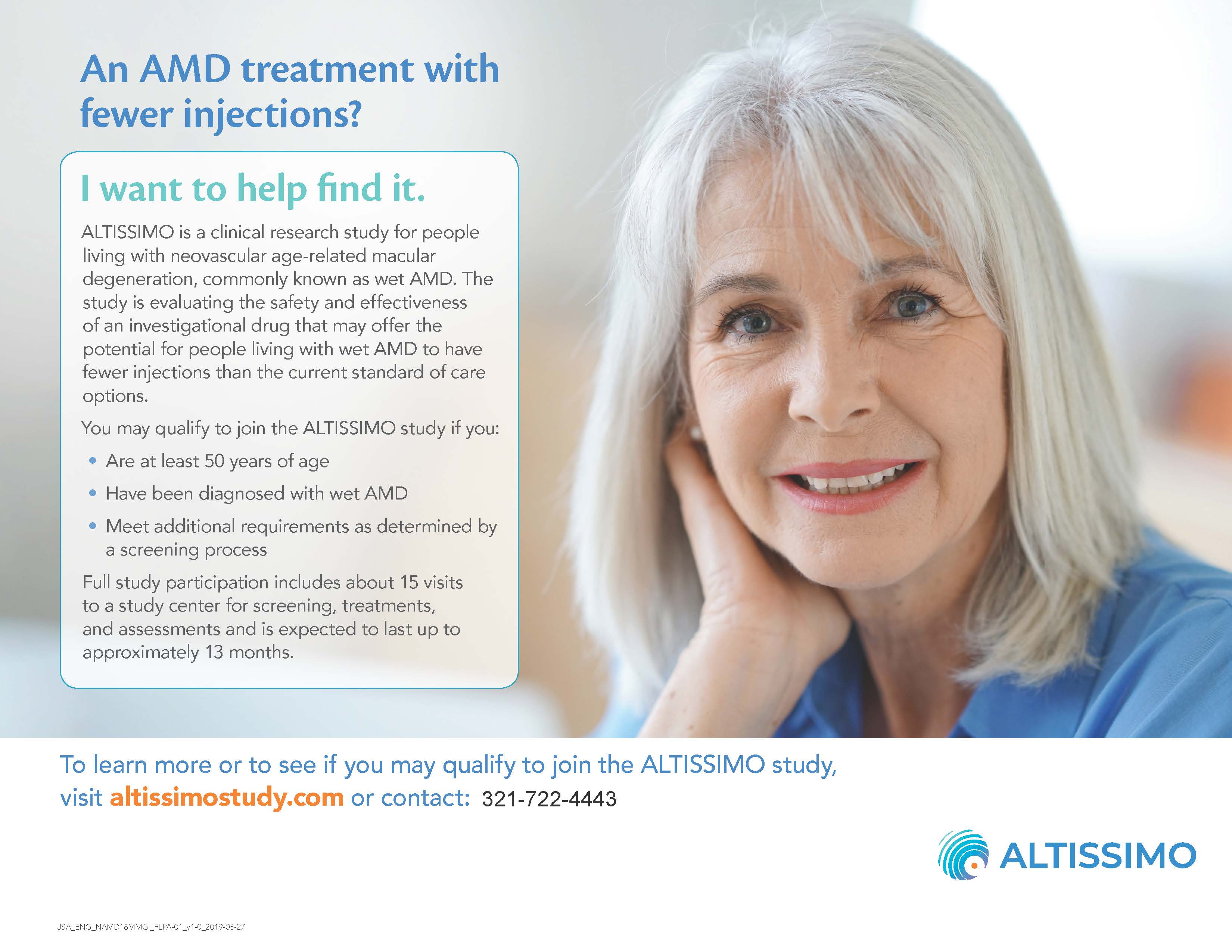Age Related Macular Degeneration
- Diagnostic Testingdropdown
- Anatomy of the Eye
- Astigmatismdropdown
- Cataractsdropdown
- Conjunctivitis
- Diabetic Eye Disordersdropdown
- Dry Eye
- Glaucomadropdown
- Lid Conditionsdropdown
- Ocular Migraines
- Retinal Conditionsdropdown
- Variations in Visiondropdown
- Video Library
- General Patient Information
- Patient Portaldropdown

AGE-RELATED MACULAR DEGENERATION
or AMD, is the leading cause of vision loss in people over the age of 50 in the United States. While the exact cause of macular degeneration is being studied, we know that different genetic and age-related factors lead to an accelerated aging process in the eye. Macular degeneration affects only the central retina (macula) which is responsible for the clear vision required to read or drive. Although it usually affects both eyes, the eyes can be affected differently.
TYPES OF MACULAR DEGENERATION
- Dry The most common type of macular degeneration. Early stages of the disease usually do not cause problems and vision usually remains good for many years. As the disease progresses to a more advanced form, most patients have a gradual visual decline over the years where reading and driving become more difficult. Any change in vision or distortion of the lines on an amsler grid may signify a change to the “wet” type.
- Wet If macular degeneration becomes “wet”, new blood vessels grow below the retina and begin to leak fluid and bleed under the retina. This causes objects to be distorted, dark spots to be seen, and central vision to be blurred. This is the most severe type of macular degeneration but thankfully has a safe and effective treatment. Ultimately, we treat the “wet” disease to make it “dry” again by stopping the leakage and bleeding.
TREATMENT FOR MACULAR DEGENERATION
- Dry Macular Degeneration Unfortunately there is no cure or treatment for dry macular degeneration. An amsler grid should be monitored daily and any changes require an urgent eye exam. Vitamin combinations of zinc, antioxidants, vitamin E, vitamin C, and beta-carotene have been shown to reduce the risk of developing advanced AMD. Eating a healthy diet including green leafy vegetables, omega-3 fatty acids, and fish may to be beneficial as well. Newer supplements such as lutein and xeozanthine are being studied in large clinical trials. Vitamin A (beta-carotine) supplementation should not be taken by anyone who smokes or has a history of lung cancer.
- Wet Macular Degeneration Avastin is the most commonly injected intraocular medication in the United States. It has proven to be very successful for preserving vision and even improving vision in patients with “wet” macular degeneration. It is often administered monthly until a response is seen and then treatment is tailored to the patients need. Lucentis is similar to Avastin and is FDA approved for use in the eye. These injections are used interchangeably and have revolutionized therapy for “wet” macular degeneration and helped millions of people around the world.
